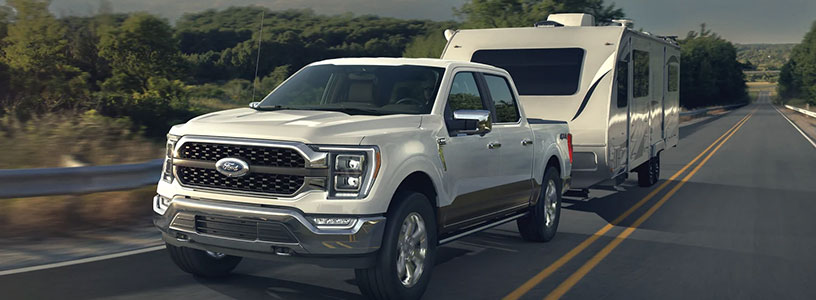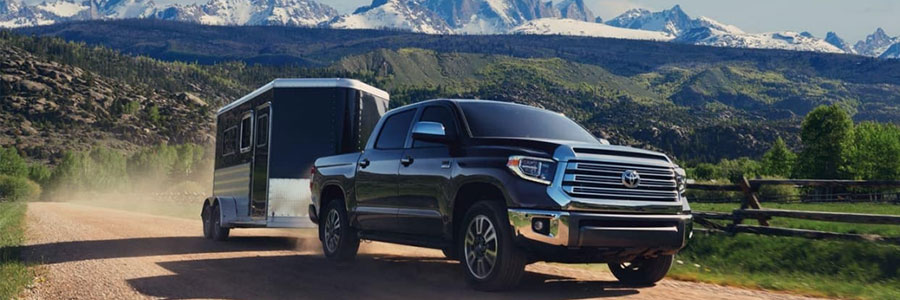How to Choose an RV That's the Right Weight for Your Truck

If you’ve been searching for the RV of your dreams, but you’re not exactly sure what your current vehicle is capable of towing, then this blog post is for you! Finding a compatible truck and RV pairing might seem challenging, but once you know which important pieces of information to look for, you’ll be driving off into the BC sunset in no time. Let’s take a look at what you need to know in order to hitch up your new RV and safely set out for your next big adventure!
There are two main weights that you’ll need to consider when you’re shopping for a new trailer, camper, toy hauler or even fifth wheel: The Maximum Towing Capacity of your vehicle, and the Dry Weight of the RV. The max towing capacity tells you exactly how much weight your vehicle is capable of safely towing, and is based on things like horsepower, torque, trailer-control systems, brakes and the strength of the frame. For example, the maximum towing capacity of a new Ford F-150 is 14,000-pounds, which means that it has been manufactured to tow up to 14,000-pounds without compromising on safety. You can easily find out your vehicle’s maximum towing capacity by checking your driver’s manual, or even performing a quick online search.

The dry weight of an RV refers to the weight of a particular unit when it comes out of the factory, without any fluids or gear onboard. At South Thompson RV, we list the dry weight of our units on each RV model page, so that you can easily find this important information. To determine whether a particular RV is the right weight for your truck, simply compare your vehicle’s maximum towing capacity and the dry weight of any unit that you’re interested in - if the weight of the RV is less than your vehicle's max towing capacity, you’re in good shape! Keep in mind that with food, fluids and other gear onboard, you can expect to add anywhere from 120-500 extra pounds. Since you’ll want to allow at least a small buffer for these extra supplies, a great rule of thumb is to look for an RV that weighs at least 500lbs less than your vehicle’s max towing capacity. If you’re planning on buying a smaller unit, you can often get away with max towing capacity and dry weight figures that are closer together, since you’ll be carrying less weight aboard your unit.

Crunching the Numbers
Let’s take a look at a real life example: a well-equipped 2020 Toyota Tundra has a maximum towing capacity of 10,200-pounds; even if you take off 500-pounds to account for fluids and gear, you should be able to choose any RV that weighs 9,700-pounds or less. Most spacious and fully-loaded units weigh-in at significantly less than that (for example, this roomy 2020 Wildwood trailer has a dry weight of 6,208-pounds), which means that you’ll have a wide range of RV options available to you that are sure to be compatible with your vehicle. If you’re concerned that only a pickup truck is capable of towing an RV, then think again! Many crossovers and SUVs are being built tougher than ever, and boast towing capacities up to 5,000-pounds - with plenty of lightweight trailers on the market, there are endless possibilities for towing an RV into the great outdoors with your current vehicle.
Need help finding the right RV for your needs, budget and current vehicle? Give us a call here at South Thompson RV! We’re experts at pairing our customers with the perfect camper, trailer, toy hauler or fifth wheel, and we can’t wait to send you off for your next big adventure.